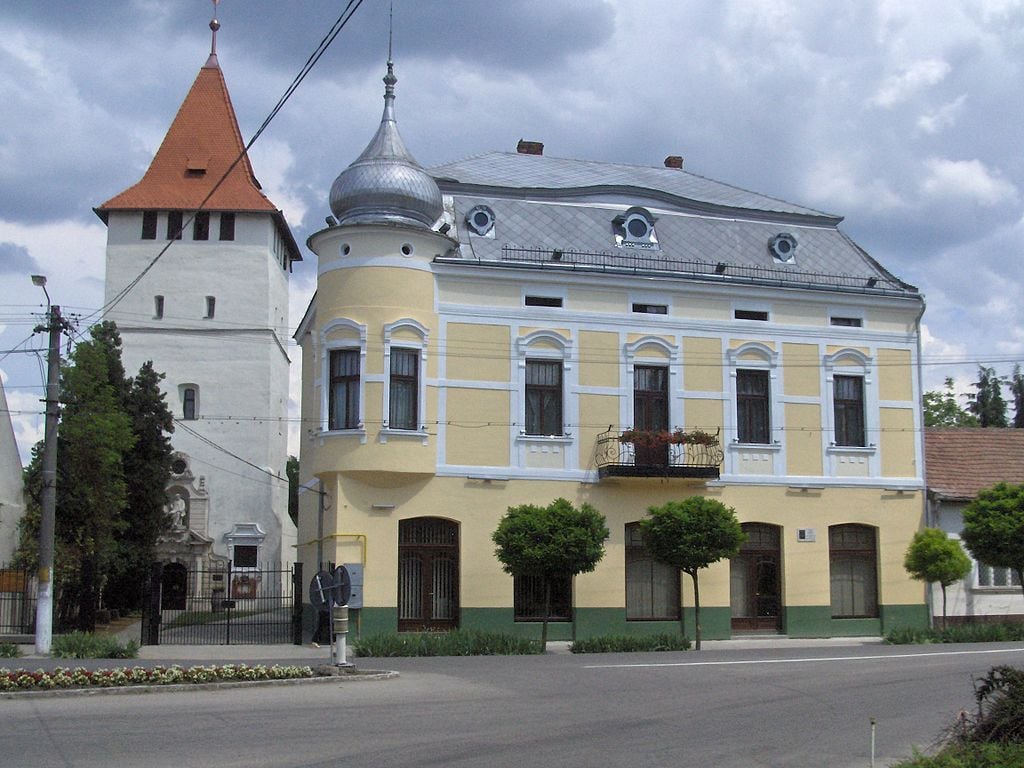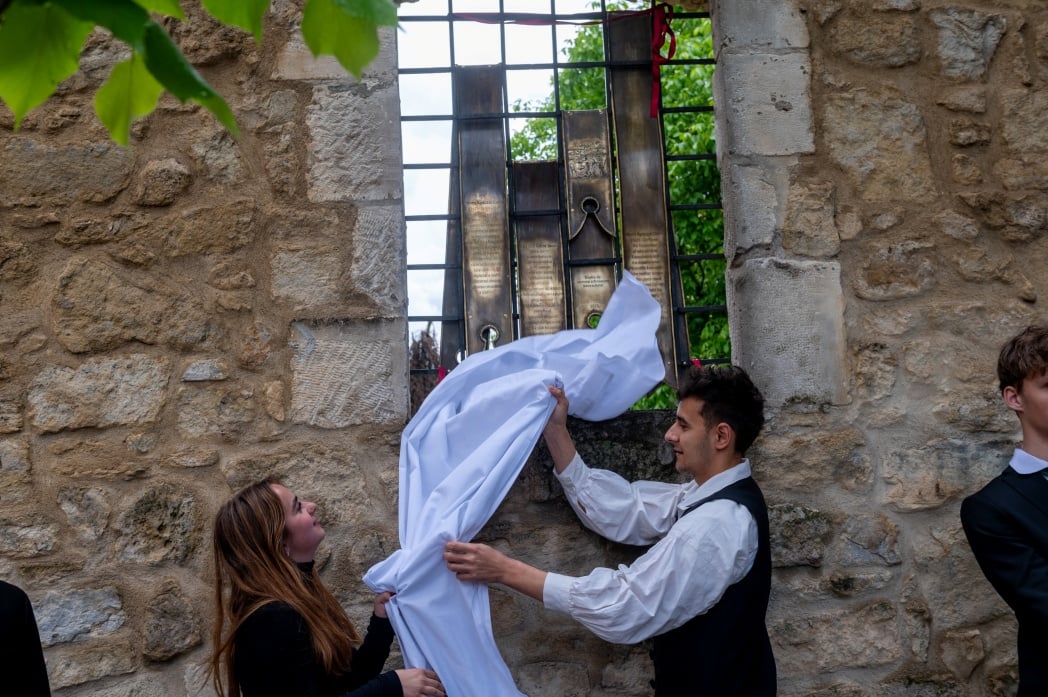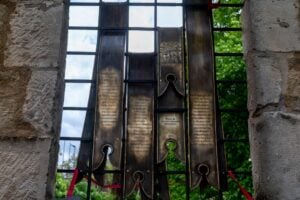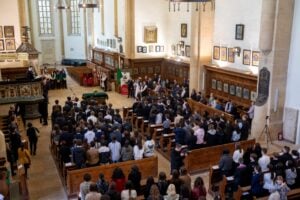
Historic family heraldry and regional symbols were officially recognized for Hungarian communities in Romania. Continue reading

On Thursday, a memorial plaque and an exhibition commemorating the life and work of János Apáczai Csere were unveiled in Cluj-Napoca (Kolozsvár) on the 400th anniversary of the birth of the Transylvanian Hungarian educator, philosopher, and theologian.
The ceremony began in the Reformed Church on Farkas Street, where Vilmos József Kolumbán, Bishop of the Transylvanian Reformed Church District, delivered the sermon. He said that it was due to János Apáczai Csere that Reformed education in Kolozsvár rose to Western European standards and that Kolozsvár became the second educational center in Transylvania after Alba Iulia (Gyulafehérvár).
He pointed out that God had gifted humans with the freedom to think, act independently, and make decisions for themselves, but in order to live well with this freedom, opportunity, and gift, wisdom must be accompanied by knowledge, and knowledge must be accompanied by wisdom.
He noted that János Apáczai Csere, as a school director, endeavored to introduce reform ideas and new trends from his studies abroad, urging Transylvanian society to seriously pursue knowledge and ensure its accessibility to all.

Featured photo: MTI/Kiss Gábor
Alpár Vörös, director of the Apáczai Csere János Theoretical Lyceum, remarked that the Hungarian community in Transylvania is “living in a time of grace” by installing a memorial plaque to János Apáczai Csere in a public space, and organizing an exhibition about the scholar in collaboration with the Romanian Academy’s library in Kolozsvár.
We must seize this opportunity and show our values to the entire Romanian community,”
he said.
He welcomed the fact that after his native village of Apața (Apáca), a memorial plaque to the scholar could also be erected in Kolozsvár on the wall of the Romkert between the church on Farkas Street and the Reformed Gymnasium, where the great scholar once taught and which was named the Apáczai Wall after him.
László Simon, the Lutheran pastor of Apáca, said in his speech that everyone could consider Csere their own, wherever they had traveled in the world, because of what he had taught. His native village named its school after him, in front of which a bronze statue stands, and a small memorial museum has also been set up for him.

Participants attend the opening service of the event series marking the 400th anniversary of János Apáczai Csere’s birth at the Reformed Church on Farkas Street in Kolozsvár on May 22, 2025; Featured photo: MTI/Kiss Gábor
Zoltán Török-Gyurkó, director of the Reformed College in Kolozsvár, stated that Apáczai can rightly be considered the apostle of modern Hungarian education, as he challenged the dominance of Latin and was the first to formulate a complete system of scientific knowledge in Hungarian, believing that knowledge should be accessible to everyone in their mother tongue. He wished that the students would draw courage from Apáczai’s example to ask questions, think, and create value.
During the ceremony, a memorial plaque designed by architect Arnold Macalik and sculpted by Botond Almássy Manasses was unveiled on the Apáczai wall in front of the church. Bishop Vilmos József Kolumbán blessed the memorial.
As part of the ceremony, an exhibition titled ‘Oratio de summa scholarum necessitate – The Life and Work of János Apáczai Csere’ was inaugurated in the library of the Cluj branch of the Romanian Academy, organized jointly by the Transylvanian Reformed Church District Archives.
In celebration of the 400th anniversary of Csere’s birth, the school in Kolozsvár that bears his name is hosting a two-day series of events, including an exhibition, a gala, and a performance by the student theater group.
Via MTI; Featured photo: MTI/Kiss Gábor